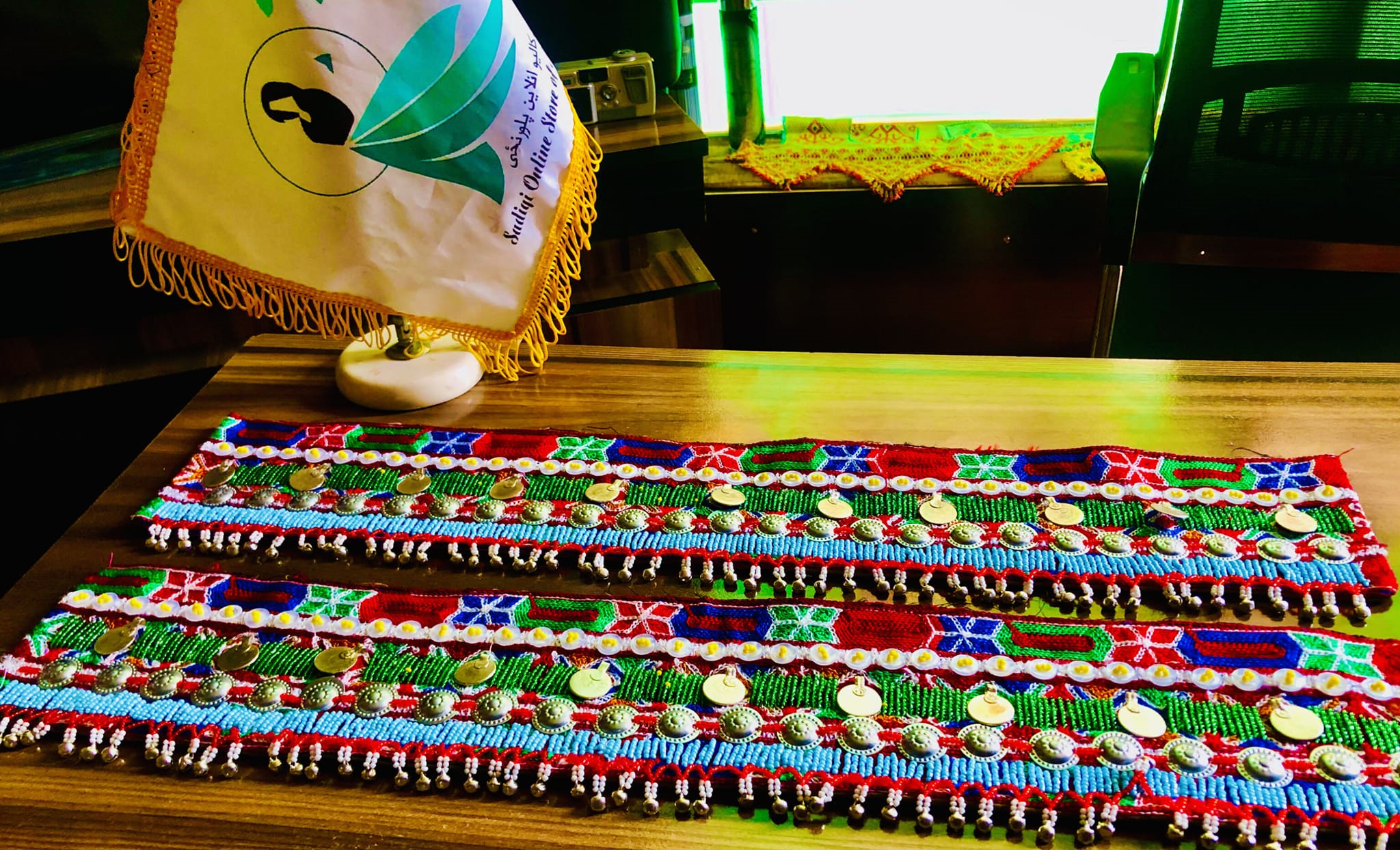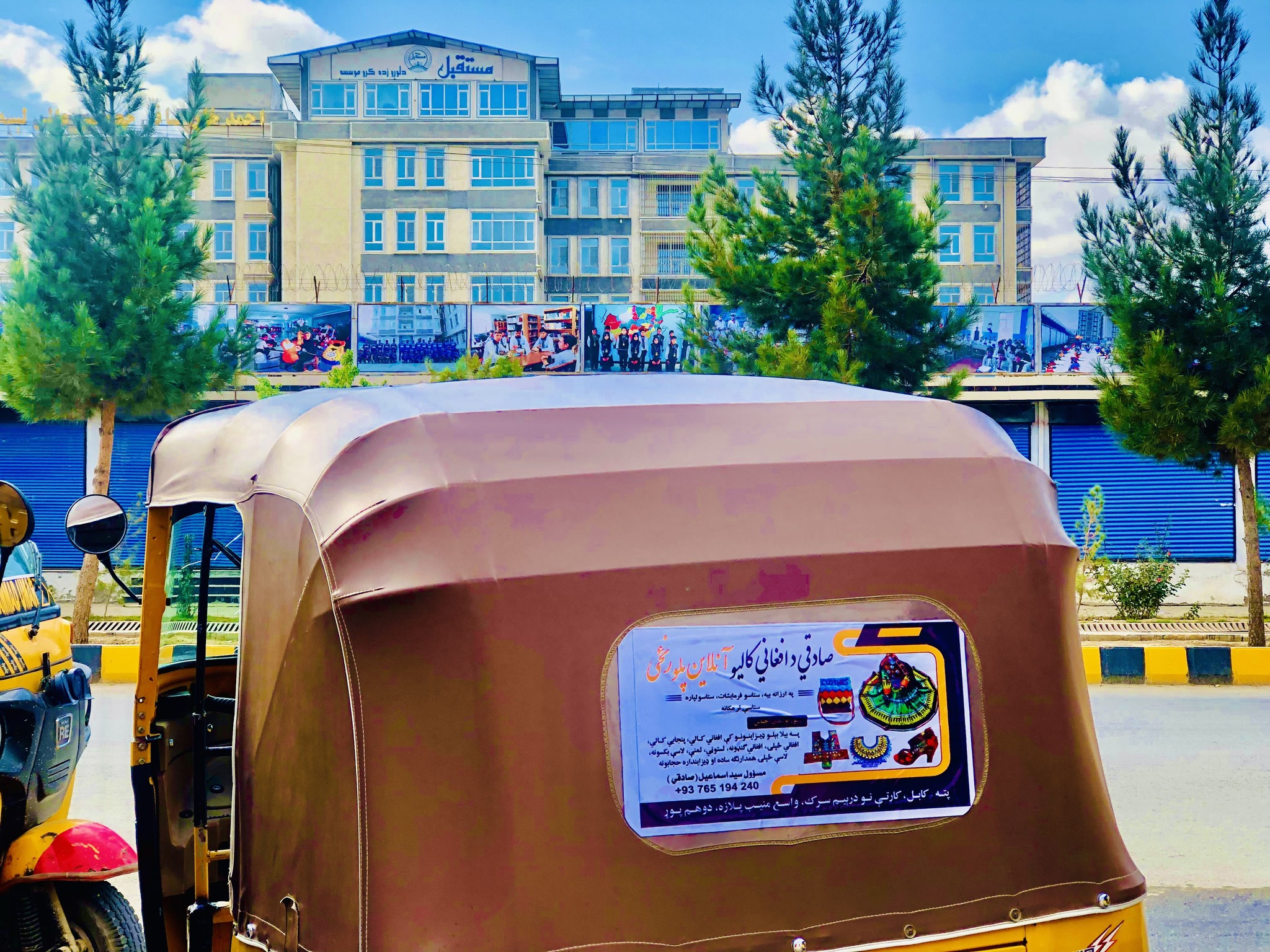How to support your family when you lose your job in difficult economic conditions?
That was the question one journalist asked himself when his newspaper fired him in 2021 amid Afghanistan’s economic crisis.
The answer surprised even the journalist himself – he started a business in an area where he knew nothing about anything except clothes.
He used modern technology to build a business that not only helped him but also dozens of others.
Syed Asadullah Sadat of the Afghanistan Analysts Network (AAN) spoke to Ismail Sadeghi, a former journalist, and wanted to know how he started his online business selling adorable traditional Afghan clothes through Facebook. His story is his own.
‘I used to cover social and economic news as a reporter in a local newspaper, but after the fall of the government, the newspaper I was working for was laid off because the money from advertisers was reduced. . That’s how my job went.
I had a little savings and we figured if we cut expenses, the savings would last me until I got another job. But like me, everyone was in the same boat. Hundreds of journalists on the unemployment line were competing for the same jobs, which were scarce.
As my savings dwindled, the weeks turned into months and I finally had to accept that I would never find another job in my profession.
I had to find a way to support my family, house, my children’s education and meet my parents’ medical expenses.
I started looking for other jobs, until one day a year ago my wife told me that a relative of ours, who was a seamstress, was looking for someone to help her market her products. .
The next day, I called my relative and we went to his house to discuss the idea with him. They told us that they are getting a lot of orders for traditional hand-made clothes.
They told me that traditional clothes were not favored during the former Afghan regime because cheap imported clothes were readily available, but now they are being favored again.
Keeping Afghanistan’s cultural heritage alive
I like the idea of bringing back traditional Afghan clothes. The idealist in me wondered how this business would save a part of our cultural heritage from extinction.
I thought back to the time I covered craft markets as a journalist. These were regularly set up by the government or NGOs that had projects to help widows or female heads of households.
I interviewed artisans from across the country about the details of their region’s fabrics. At the time, he would tell me how long it took to make each piece, how difficult it was to sell his work at a profit and when projects were finished, he would have unsold stock and how to find customers. It was difficult to do.
So we agreed to focus on traditional Afghan clothing, such as afghani (traditional Afghan wedding dress) and other handmade Afghan accessories that we could make in our business partner’s small home workshop.
We spent a few weeks talking about how we should proceed. We did not have enough money to open a shop. As a journalist, I knew that young Afghans used social media a lot and that e-commerce was a growing sector in the economy and that creating a Facebook page was free. So, we decided to focus on online sales.
Thus I opened an online shop selling traditional Afghan clothes.
Running an Online Business in Afghanistan
It was difficult at first. We didn’t have much money to invest in the business and I didn’t know anything about clothes, sewing or selling. But I was desperate to find a way to support my family and my business partner, a tailor, had a good reputation for making high-quality clothes.
We used part of my savings, about 50 thousand Afghani (US$550) to make some prototypes and I started showcasing my work through photos that I would post on Facebook and run ads.
Slowly the orders came in – only from a few people who knew my business partner’s work, and there was a time when I almost gave up on everything. But my wife kept urging me to stay on the same path and I’m glad I listened to her.
This section contains related reference points (Related Nodes field).
Our reputation for quality workmanship grew and more orders started pouring in. Today, customers from all over Afghanistan place orders with us using our Facebook page.
Even we got some orders from abroad, but it is difficult to send things from Afghanistan abroad. It’s a market we want to grow, but with all the banking restrictions, trading outside of Afghanistan seems like an impossible dream.
It’s hard to believe that it’s only been a year since we started the business. In such a short time, we have developed a strong customer base and have had to hire more people to fulfill the orders.
Since our inception, we have employed 23 people, including 16 women, who work from home as tailors and artisans, who work with beads and leather.
Our products include a variety of Afghan clothing and accessories, both machine and hand-made, and traditional embroidery techniques such as gulabatoon (silk thread), zartar (golden thread) and charma doozi (double stitch). We have also ventured into leather work such as sandals and purses. Our most popular items include Kochi style dresses, Afghan shawls and handmade beaded purses.
We even have a designer who designs clothes according to our customers’ wishes. We don’t have much money to store raw materials, so when the customer agrees to the design, we buy clothes and other materials from the market and deliver them to the home of one of the tailors/artisans who make the clothes.
Once the item is made, we deliver it to the customer by courier and they pay us cash on delivery.
But no matter how successful online sales are, people still hardly trust a business that doesn’t have a store or factory.
So after getting a business license from the Taliban government eight months ago, we rented a small storefront and opened a showroom. Address has given us more legitimacy and increased customer trust. Thank God we are making good money.
There is also a monthly profit of about 20,000 Afghani (230 US dollars) after expenses. I’m putting money aside for hard times, or maybe we’ll use it to grow the business.
But the most satisfying thing is that in addition to my own and my partner’s families, our business supports the families of the 23 people who work for us. Each of these families has eight or ten members.
Creating employment opportunities for women
Crafts in Afghanistan are mostly done by women, who often specialize in sewing, weaving, beadwork, embroidery and other traditional crafts. This means it can become an important source of income for them, especially in these tough economic times.
I am happy that I have been able to provide employment to women. These days, many women are staying at home and struggling to find a job. Now some of them are working. I have bought sewing machines for them with my own money so that they can work at home. She can also do housework and sewing.
In this way they can support their families financially. These days, many women are training as tailors and artisans in hopes of earning a living. It has become known that I employ good seamstresses and I receive many calls daily from women seeking work.
Future planning
As the country’s economy continues to suffer, I am afraid that my business will also have a hard time. As people’s incomes become less and less, necessities of life such as food and paying rent will be prioritized over luxuries such as clothing.
I hope the government will support local manufacturers and not allow cheap imported products to enter the market. The UAE can subsidize the textile industry so that the cloth and other items we use can be produced in Afghanistan. This will not only make the raw materials we need cheaper but also create employment opportunities and bring money into the economy.
If women can work outside the home and if the government helps me with subsidies, I can open a big factory so that all women can work under one roof. We can invest in professional industrial machinery and employ more people, including women. These things will make our work easier, faster and more profitable.
We don’t have to pay for couriers to go to people’s homes all day to deliver raw materials and pick up finished products, which is time-consuming and expensive.
Online sales have tremendous potential. This eliminates geographical boundaries and makes it possible to trade worldwide, as with fashion websites in China.
I know that businesses in Afghanistan cannot currently trade globally, but I hope that Afghanistan can one day rejoin the global economy. When that day comes, I plan to open the first online Afghan clothing store selling clothes from Afghanistan to customers around the world.’
Courtesy: Afghanistan Analysts Network
#Afghanistan #Story #Unemployed #Journalist #Online #Business
2024-05-06 14:29:18






:quality(75)/cloudfront-us-east-1.images.arcpublishing.com/elcomercio/LMN5TRCHBJHTHCS7FG37EOACDI.jpg?w=150&resize=150,150&ssl=1)


